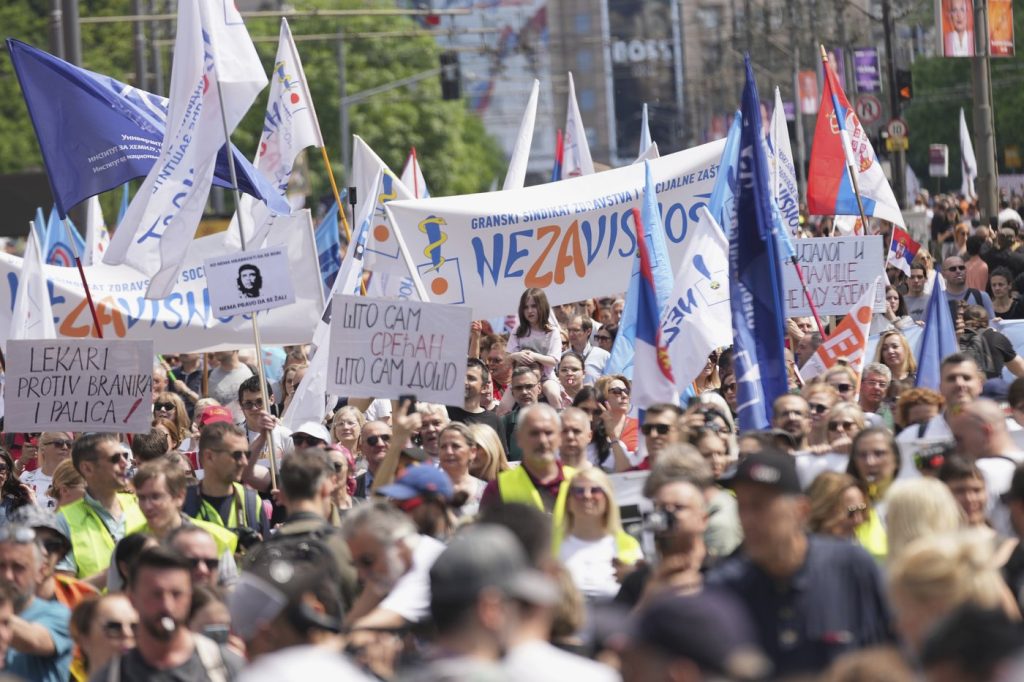BELGRADE, Serbia (AP) - An appeals court in Serbia released three out of six political activists from jail on Tuesday amid ongoing protests and international criticism directed at the populist government. This government, led by President Aleksandar Vucic, has faced months of anti-corruption demonstrations following a tragic incident in November 2022.
The court, situated in Novi Sad, mandated that the three released activists remain under house arrest while legal proceedings continue against them on allegations of anti-state activities. The court has yet to announce a ruling for the remaining three activists who have been detained.
The activists were arrested in March after secret recordings, allegedly detailing plans to take over state institutions, were aired by pro-government media just before a major demonstration in Belgrade. This has fueled public outrage, with hundreds taking to the streets to protest their extended detention.
Among those freed was a high school teacher who had been transferred to a prison hospital in Belgrade after undertaking a hunger strike. This protest highlights the activists' commitment to their cause and the intensifying tensions between the government and citizens.
A significant rally on March 15 in Belgrade became a focal point of the protests that erupted after a concrete canopy collapsed at a train station in Novi Sad on November 1, 2022, leading to the deaths of 16 people. Following this tragedy, Vucic’s government faced heightened scrutiny and backlash from citizens demanding accountability and reform.
Legal representatives for the jailed activists claim that the accusations against their clients stem from illegal wiretapping and argue that there is insufficient evidence to support the charges. The court's decision to release some of the activists has been met with criticism from Vucic, who labeled them as “terrorists” during an interview with the pro-government Informer television. He attributed the court's ruling to outside pressure from protesters, asserting that no country would release individuals accused of such serious crimes.
Protesters in Novi Sad have declared their intention to persist with demonstrations until all six activists are released from prison. Additionally, six others facing similar charges remain outside the country, further complicating the situation.
The court ruling coincided with the visit of U.N. High Commissioner for Human Rights Volker Turk to Belgrade, underscoring the international implications of the case. Last week, Tonino Picula, the European Parliament’s envoy for Serbia, referred to the detained activists as “political prisoners,” while the Civil Rights Defenders group condemned the government's actions as a clear attempt to suppress dissent.
Critics have increasingly accused Vucic of fostering an authoritarian regime that undermines media freedoms and democratic institutions in Serbia. Vucic asserts that he strives for Serbia to join the European Union, even as he strengthens ties with Russia and China.
Many in Serbia believe that pervasive government corruption related to major infrastructure projects has contributed to negligence and violations of construction regulations, which ultimately resulted in the disaster at the Novi Sad train station in November. This perception has been a crucial motivator behind the ongoing protests against the government.











